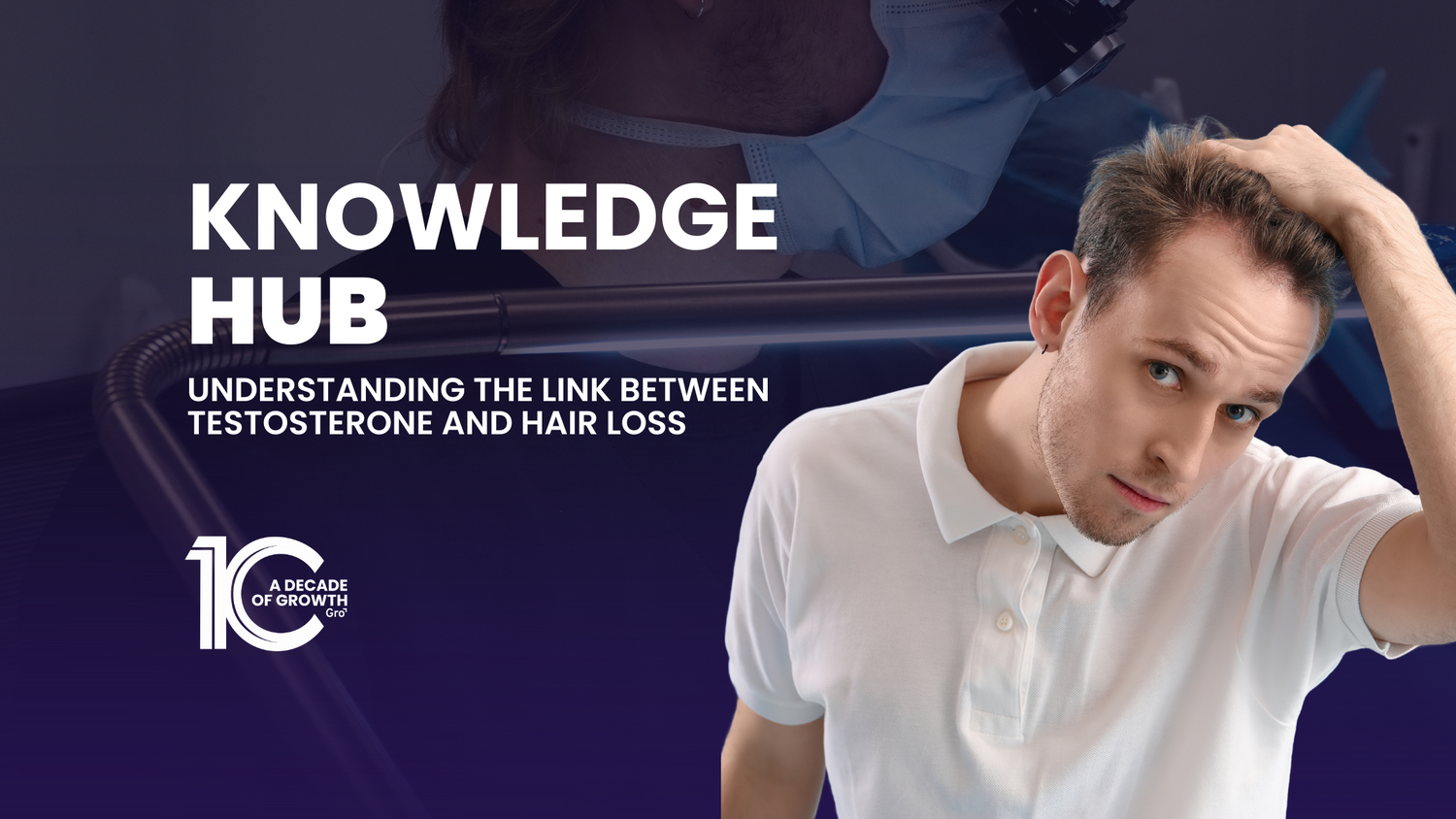Testosterone often gets blamed for hair loss, but the real connection is more complex. Many people believe that higher testosterone levels cause baldness. In reality, hair loss depends more on genetics and follicle sensitivity than hormone quantity. This article unpacks the science behind testosterone, DHT, and hair thinning.
Does Testosterone Directly Cause Hair Loss?
Contrary to popular belief, men with higher testosterone levels aren’t automatically more likely to experience hair loss. The key factor is how your body converts testosterone into a hormone called DHT (dihydrotestosterone).
The Role of DHT
- DHT is a by-product of testosterone.
- It’s produced by the enzyme 5-alpha-reductase.
- DHT can bind to scalp hair follicles and cause them to shrink.
This process is known as follicle miniaturisation, and over time, it can reduce the size and function of hair follicles.
Why Some Follicles Are Affected
Genetics determine how sensitive your hair follicles are to DHT. People with a family history of androgenetic alopecia—commonly known as male or female pattern hair loss—are more likely to experience hair thinning or recession.
What About Women?
Although women produce less testosterone than men, DHT can still impact hair follicles in a similar way. Female pattern hair loss usually presents differently but involves the same hormonal mechanism.
Managing DHT Sensitivity
There are clinically supported approaches that may help reduce the impact of DHT on hair follicles, depending on your situation. These may include:
- Prescription hair care prescribed by a qualified doctor
- Blocking 5-alpha-reductase to reduce DHT conversion
- Consulting a doctor-led medical team for personalised advice
How a Hair Transplant May Help
Hair follicles on the sides and back of the scalp are typically more resistant to DHT. These areas often retain hair even in advanced stages of hair loss.
At Gro Clinics, our doctor-led team uses a technique called Precise Follicle Placement (PFP). This method involves moving healthy follicles from more resistant areas of the scalp to areas affected by thinning. The procedure is performed or overseen by qualified doctors and is designed to ensure natural-looking results.
Patients who qualify may also explore using their superannuation to help fund a procedure.
Get Support From a Gro Hair Growth Advisor
All consultations at Gro Clinics are carried out by trained hair growth advisors. During your consult, you’ll receive information about the factors influencing your hair loss and potential treatment options.
Gro Clinics are available across Australia and New Zealand:












